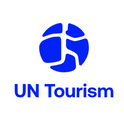World Tourism Organization General Assembly Opens With Sustainability and Innovation Top of the Agenda
The 23rd Session of the General Assembly of the World Tourism Organization (UNWTO) has opened in Saint Petersburg, Russian Federation, with high-level delegates joining tourism leaders from around the world for the most important meeting for the global tourism sector.
More than 1,000 participants from 124 countries have travelled to Saint Petersburg to be part of more than a dozen international tourism governance events during this week hosted by the United Nations specialized agency for responsible and sustainable tourism. The General Assembly paves the way forward for tourism's contribution to the 2030 Agenda for Sustainable Development and tourism's voice at the heart of the United Nations and the global policy agenda.
High level summits and debates will address key topics including tourism's increasingly-prominent role in advancing the sustainability agenda, private-public cooperation, and the place of innovation and entrepreneurship in the future of tourism, with a particular focus on job creation, education and the fight against climate change.
Highlighting the importance of the occasion, President of the Russian Federation, Vladimir Putin addressed delegates via a specially-recorded video message. President Putin noted that it was a "great honour" for St Petersburg to host the General Assembly and expressed his desire for Russia to also host World Tourism Day in 2022.
Opening the General Assembly, UNWTO Secretary-General Zurab Pololikashvili told the organization's Member States and its private sector Affiliate Members that the true potential of tourism as a driver of economic growth, sustainable development and equality has yet to be realized.
"An attitude of 'business as usual' will not drive the change we want to see. The tourism sector needs to reflect the realities of a changing world," Mr Pololikashvili told the General Assembly.
"That means promoting the spirit of entrepreneurship. It means training people for the jobs of tomorrow. And it means being open to innovation, including the power of technology to change the way we travel - and how the benefits that tourism can bring are shared as widely as possible."
The General Assembly is being held just days after the UNWTO's latest World Tourism Barometer highlighted the strength and resilience of global tourism. According to the latest data, total international tourist arrivals grew by 4% between January and June 2019 when compared with the same period of 2018. This growth was led by the Middle East (+8%) and Asia and the Pacific (+6%), with more affordable air travel, strong global economies and improved visa facilitation all contributing to the positive trend.
About UN Tourism
The World Tourism Organization (UN Tourism) is the United Nations agency responsible for the promotion of responsible, sustainable and universally accessible tourism.
As the leading international organization in the field of tourism, UN Tourism promotes tourism as a driver of economic growth, inclusive development and environmental sustainability and offers leadership and support to the sector in advancing knowledge and tourism policies worldwide.
Our Priorities
Mainstreaming tourism in the global agenda: Advocating the value of tourism as a driver of socio-economic growth and development, its inclusion as a priority in national and international policies and the need to create a level playing field for the sector to develop and prosper.
Promoting sustainable tourism development: Supporting sustainable tourism policies and practices: policies which make optimal use of environmental resources, respect the socio-cultural authenticity of host communities and provide socio-economic benefits for all.
Fostering knowledge, education and capacity building: Supporting countries to assess and address their needs in education and training, as well as providing networks for knowledge creation and exchange.
Improving tourism competitiveness: Improving UN Tourism Members' competitiveness through knowledge creation and exchange, human resources development and the promotion of excellence in areas such as policy planning, statistics and market trends, sustainable tourism development, marketing and promotion, product development and risk and crisis management.
Advancing tourism's contribution to poverty reduction and development: Maximizing the contribution of tourism to poverty reduction and achieving the SDGs by making tourism work as a tool for development and promoting the inclusion of tourism in the development agenda.
Building partnerships: Engaging with the private sector, regional and local tourism organizations, academia and research institutions, civil society and the UN system to build a more sustainable, responsible and competitive tourism sector.
Our Structure
Members: An intergovernmental organization, UN Tourism has 160 Member States, 6 Associate Members, 2 Observers and over 500 Affiliate Members.
Organs: The General Assembly is the supreme organ of the Organization. The Executive Council take all measures, in consultation with the Secretary-General, for the implementation of the decisions and recommendations of the General Assembly and reports to the Assembly.
Secretariat: UN Tourism headquarters are based in Madrid, Spain. The Secretariat is led by the Secretary-General and organized into departments covering issues such as sustainability, education, tourism trends and marketing, sustainable development, statistics and the Tourism Satellite Account (TSA), destination management, ethics and risk and crisis management. The Technical Cooperation and Silk Road Department carries out development projects in over 100 countries worldwide, while the Regional Departments for Africa, the Americas, Asia and the Pacific, Europe and the Middle East serve as the link between UN Tourism and its 160 Member States. The Affiliate Members Department represents UN Tourism's 500 plus Affiliate members.
UNWTO Communications Department
+34 91 567 8100
UN Tourism
